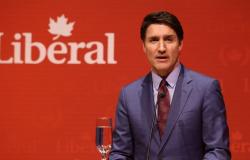Lhe Bashar regime collapsed on December 8 after 14 years of suffering and misery for the Syrian people and instability in the region. The rebels, previously branded terrorists, swept through Syria’s main cities, almost unopposed, and forced Bashar to flee to Russia.
Interestingly, just two weeks before Assad fled to Russia, representatives of Iran, Russia and Turkey expressed “their belief that there could be no military solution in Syria and reaffirmed their commitment to advancing a viable and sustainable political process, Syrian-led and owned, and facilitated by the UN, in accordance with Resolution 2254 of the UN Security Council”, in a joint statement following the Astana meeting held in Kazakhstan in November 2024.
Along the same lines, a day before Assad’s fall, the foreign ministers of Qatar, Saudi Arabia, Jordan, Egypt, Iraq, Iran, of Turkey and Russia “stressed the need to stop military operations with a view to launching a comprehensive political process, based on Security Council Resolution 2254”, during a meeting on the sidelines of the Qatar Forum.
Today’s reality raises more questions than it answers. Behind the general statements, the meeting participants must have reached an agreement that topples Assad and avoids bloodshed under specific conditions and guarantees.
Fourteen years of crisis must have exhausted all stakeholders. The uncertainty could not last. A tacit agreement probably facilitated the collapse of the regime. Syrian leaders ordered their army to retreat, while Russian, Iranian and Hezbollah forces watched the rebel advance from a distance. Israeli forces destroyed the military arsenal of the Syrian Arab Army.
Al Julani changed his appearance and name. The Turkish-backed Syrian National Army has pushed Kurdish forces out of several towns and areas they previously controlled. The United States, an ally of the Kurds, ordered Kurdish forces to withdraw from several major northern towns.
Towards a multipolar world
From the beginning, the Syrian crisis took place in the context of broader global dynamics:
1. The West’s resistance to the loss of its hegemony in the region and in the world;
2. Regional competition for influence in West Asia, a potentially strategic hub within the emerging world order.
These two dynamics have quickly transformed the Syrian crisis into a complex conflict that is largely beyond the control of national actors. While regional and global powers were involved directly or indirectly to serve their specific strategic interests and agendas, the Syrian regime had only political maneuvering, delaying tactics, and internal repression to ensure its survival.
In reality, overthrowing Bashar — or promoting the well-being of the Syrian people — was never the ultimate goal of the various stakeholders. All sought to establish a “Syria” that served their strategic objectives.
At the beginning of the 21ste century, the United States were already targeting Syria for regime change as part of a reconfiguration of the Middle East and its security architecture that would keep West Asia divided and subjugated to Western hegemony. The West has pursued this goal through full and unconditional support for Israel and a systematic effort to inflame intraregional tensions.
Conversely, the strategic objective of Russia was to prevent the United States from cementing its hegemonic position. A Syria not aligned with the United States would guarantee easier access to the Mediterranean, the Gulf, Iraq and Iran.
China needs stability and prosperity in West Asia for two reasons. First, a strong West Asia would balance the emerging multipolar world and reduce geopolitical tensions. Second, it would guarantee China’s supply of oil and gas to the region.
The interests of Iran are focused on preventing a hostile regime in Syria and ensuring easy and secure access to the Mediterranean for trade and investment purposes. The Shiite Crescent narrative is secondary to Iran’s strategic economic interest.
Turkey pursues a multi-pronged objective centered on safeguarding its national security against Kurdish separatism, expanding its influence over Syria, preventing a competing regional power from establishing a strong foothold on its southern borders.
Pour Saudi Arabia and the Gulf Statesstability in Syria is essential to the political stability of the region. A friendly regime in Syria would also allow access to Europe and the Mediterranean through Syrian territory. A stable and inclusive Syria would preserve the economic and political interests of the Arabian Peninsula, even if Syria moved toward a Turkish sphere of influence.
Beyond the individual strategic interests of regional powers, a more strategic common goal is to build West Asia as an independent hub, not a “gas station” or logistics corridor, IMEC, connecting the India to Europe via Israel and the Emirates.
The real problem behind the troubles of the 21ste century in the region lies in the twists and turns of the transition from a Western-led world order to a multipolar order. In the Western paradigm, the concept of West Asia threatened Europe and should not emerge.
However, the new regional leaders do not feel trapped in the old paradigm. Despite their differences, Turkey, Saudi Arabia, Qatar, the Emirates and Iran engage in contact and dialogue driven by a pragmatic approach. Their long-term goals align. They all seek sovereignty, stability and autonomy to unlock the region’s political and economic potential.
The main challenges facing their vision are:
1. An aggressive State of Israel.
2. Non-recognition of the right of Palestinians to exist.
3. The crisis in Syria.
The Syrian crisis has global geopolitical roots and regional implications. The solution must be global, regional and national.
The West has no other long-term options than to accept the new reality. West Asia has the potential to become a crucial and prosperous hub in the emerging multipolar world. Collective, pragmatic leadership and a balanced architecture of security and influence among major regional powers should guarantee peace and stability.
Syria is at the heart of Western Asia and connects its major centers of power. Its political and social stability in a balanced security and political configuration of West Asia is crucial. Syria should be the unifying node of the region.
El Mostafa Benlamlih, author of this column, was humanitarian coordinator in Syria and deputy secretary general of the United Nations.





